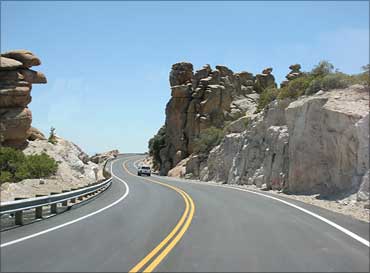
The report by Gajendra Haldea, who is the infrastructure advisor to the Planning Commission chief, requires serious rethinking of the NHAI model, not an outburst by Kamal Nath.
Over the past several years, each time anyone has questioned any infrastructure project being built (the post-Nehru temples of India!), the dominant reaction in certain circles has uniformly been the same: Is it more important to save some money or is it more important to get projects on the ground?
Sure, there was a lot less scandal in the days the Airports Authority of India was in charge, the argument goes, but look at how poor the quality of airports was and how small their capacity; ditto in the case of roads in the old days since the progress of new highways was near zero; the list can be multiplied manifold to areas like ports, power, telecom, oil and gas and so on - to recall the slogan of the Enron days in the early 1990s, the most expensive power is no power!
In any case, another strand of this argument is: It hardly matters if the government is getting diddled in the bargain since the money would have been wasted in its hands anyway.
...
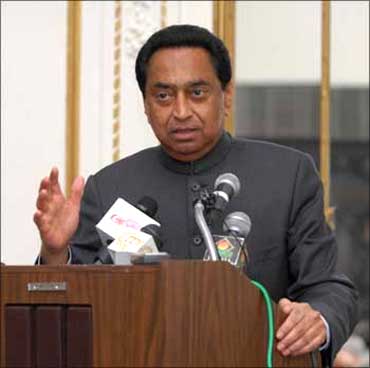
Put that way, the choice seems an easy one.
The reality, however, is a lot more complex. In the case of Enron, for instance, at the cost it was selling the power, the Maharashtra State Electricity Board would have got bankrupt in no time and, since the entire amount was guaranteed by the state government, so would the state.
In which case, who would have bought the Enron power?
And while Roads Minister Kamal Nath lost his cool with the Planning Commission - when he referred to the Planning Commission as being an armchair adviser, he was really referring to Gajendra Haldea - the point Haldea was making was essentially the same, that the way the National Highways Authority of India was going about approving highways at costs which had increased dramatically in recent times, it would soon be bankrupt and hence lose its ability to build highways.
...
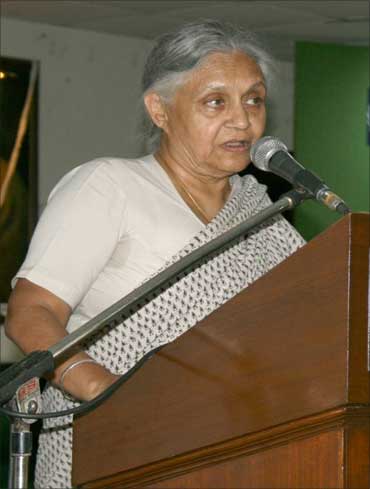
Nor is it immediately clear that high degrees of corruption in themselves will ensure things get going, even if you assume that morality is a side show in the economic development game.
The Bharatiya Janata Party is risking its government in Karnataka, and its reputation at the national level, by backing the Reddy brothers despite all the evidence against them - when major political parties get destabilised trying to protect businessmen, that's bad news.
Similarly, while theory tells you costs come down when private sector firms come in, what are you to make of Delhi Chief Minister Sheila Dikshit actively preventing the electricity regulator from lowering tariffs in the capital; or of the Union government allowing the Delhi airport franchisee to charge a development fee when, in fact, it had already been given land worth thousands of crores to finance the airport without charging passengers such a fee?
The point is simple: if private sector players can lobby politicians to prevent competition from coming in or to be allowed to levy monopoly rents, they will.
And the more supernormal the profit allowed, the more the pressure to prevent new entrants into the sector - who do you think is lobbying the government to stop auctioning of mines?
Those who are extracting supernormal profits using the current system, that's who.
In other words, supernormal profits are unlikely to result in more players coming in and, to the extent existing players can execute only so many projects at any point in time, it restricts development.
...
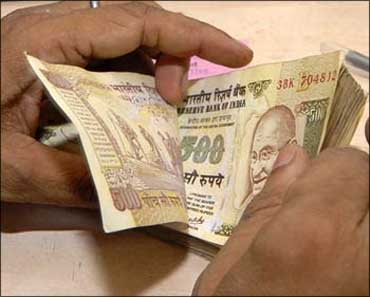
The Haldea "issues paper" on "sub-prime highways" is important precisely because it deals with both these issues simultaneously.
It talks of the NHAI promoting high-cost projects while, at the same time, trying to restrict competition.
You don't have to agree with Haldea on everything, but the issues he flags are serious enough to warrant detailed investigation, certainly not the slanging match that Kamal Nath reduced it to:
In 20 projects he lists, the NHAI had estimated the project cost to be Rs 13,700 crore (Rs 137 billion) while public sector banks, primarily, have lent to it on the assumption that the project cost was Rs 26,000 crore (Rs 260 billion).
The NHAI, several of those in the infrastructure space have told me, does not include all costs, but we're talking of a near 100 per cent difference here.
In a very large number of cases, there is just one bidder. In two cases, when rebidding was done, the costs came down substantially.
...
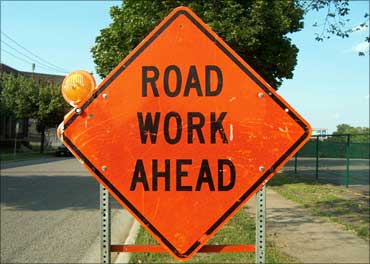
The NHAI is proposing to add some clauses to the model concession document which will prevent smaller firms from bidding for more projects.
This is quite surprising since, so far, the impression given was that the Planning Commission was favouring larger firms, the finance ministry has endorsed Haldea's views on this.
While the NHAI has promised to give annuities (literally annual payments to bridge a shortfall in revenues to those building highways) of around Rs 9,500 crore (Rs 95 billion), its current cess collections are around Rs 7,800 crore (Rs 78 billion) - obviously the collections will rise once more roads get built but the roads ministry had fixed the annuity-to-cess ceiling at 35 per cent a year ago, after the Cabinet directed it to fix a ceiling.
If this isn't bad enough, the viability gap funding - unlike annuities which are annual payments, VGF is an upfront payment for the same purpose - is likely to be around Rs 25,000 crore (Rs 250 billion) by next March.
Where is the NHAI going to fund this from? There's another Rs 15,000-odd crore (Rs 150 billion) of committed liabilities on other accounts like the ongoing rate-contracts as well.
If the NHAI is bankrupt, who is going to finance the highways? The head priests at modern India's new temples need to ponder over these issues.
Blind denunciation of those attempting to put a structure to infrastructure development and a check on rampant corruption isn't going to help.